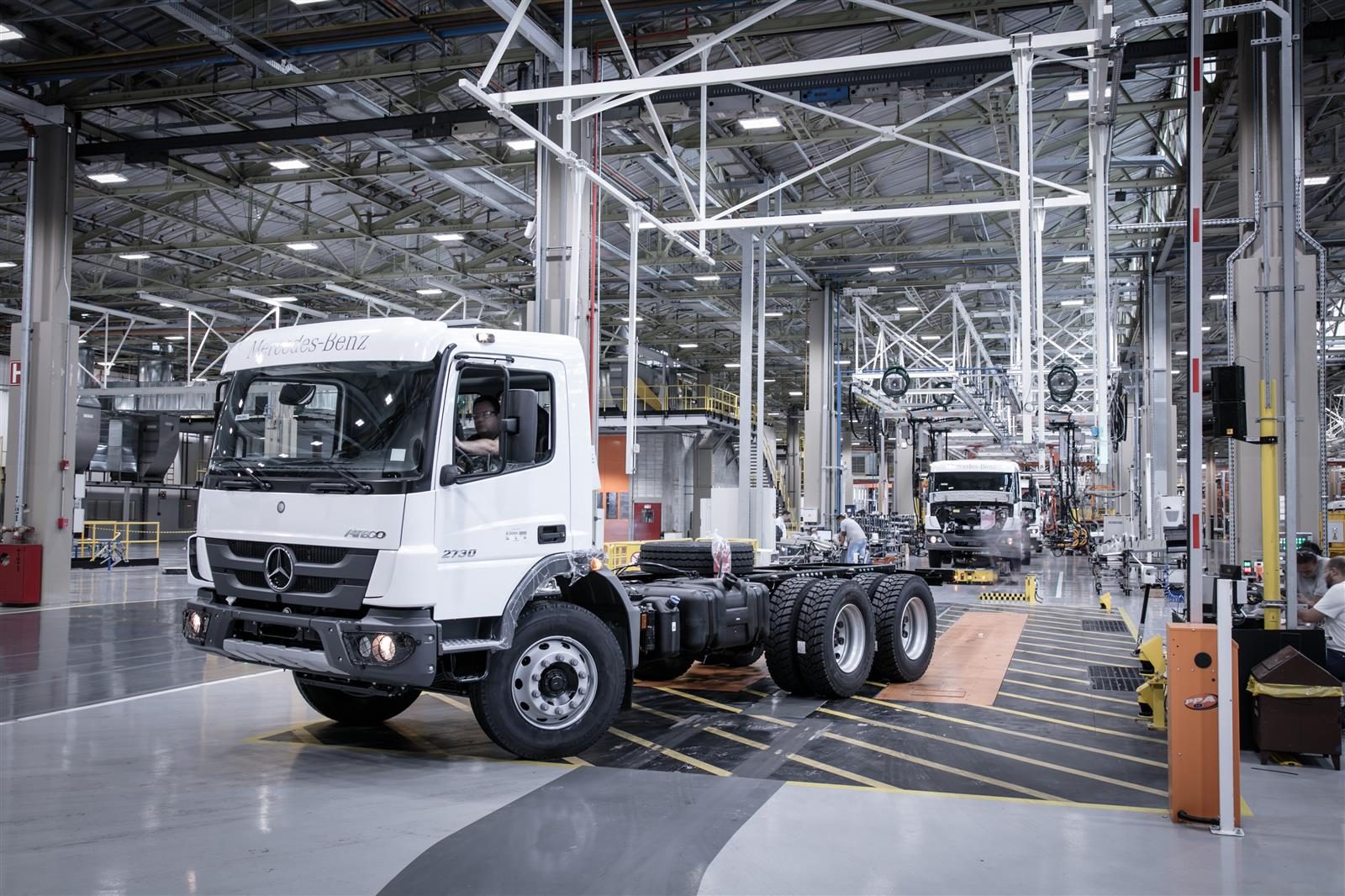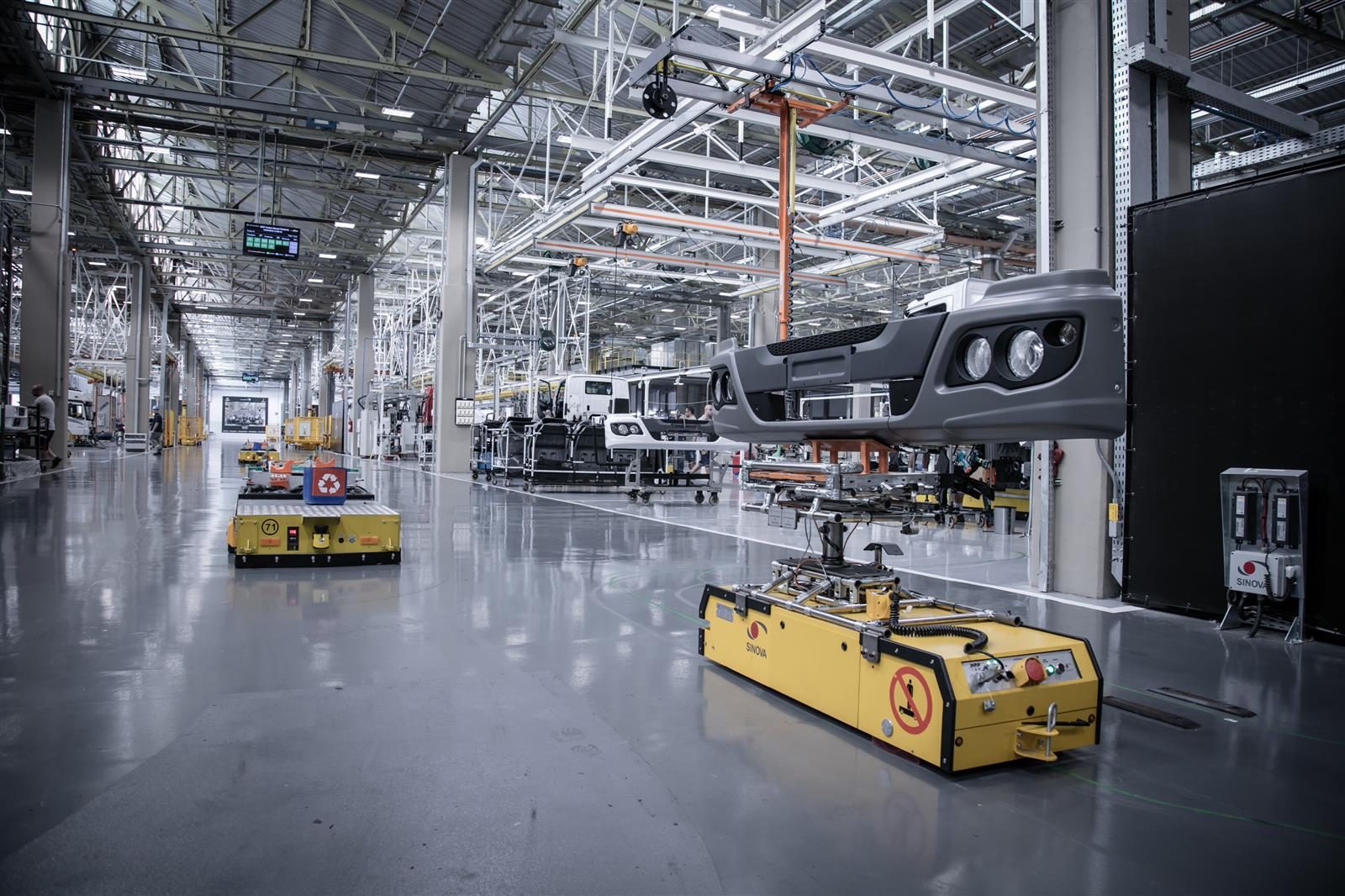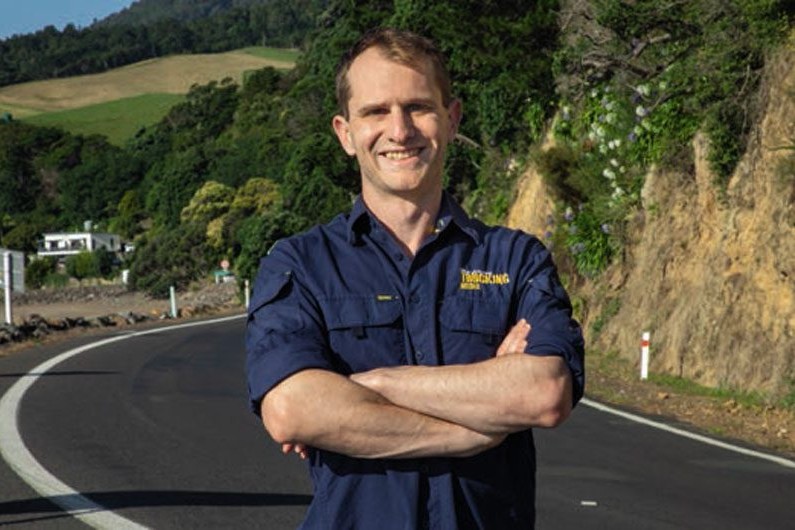Industry 4.0: Daimler Trucks revolutionises truck production in Brazil

Daimler Trucks is launching a new era of truck production in Brazil, involving systematic implementation of Industry 4.0 concepts. A completely new type of truck assembly line has now begun operation at the Brazilian Sao Bernardo do Campo plant of Daimler subsidiary Mercedes-Benz do Brasil.
The application of hyperconnectivity (real-time networking of individuals, things, devices) and digital technologies to systems and tools results in a future-oriented production system. A new building has been constructed to house the assembly of light- to heavy-duty trucks and the associated parts logistics processes.
“Brazil currently recovers as a truck market,” said Stefan Buchner, worldwide head of Mercedes-Benz Trucks, as production started. “We have always believed in the market and continued to invest there. We are now opening our completely networked production line in Sao Bernardo do Campo and thereby revolutionising truck manufacturing in Brazil. The new facility also sets standards within the global production network for Mercedes-Benz Trucks. For our customers, this means even more flexibility and efficiency.”
Daimler Trucks has never wavered in its commitment to Brazil, even through a number of difficult years, but focused on making the business fit for the future. Over the past three years, Daimler Trucks has invested some 125 million euros (NZ$213.4 million) in the new truck assembly line. In order to be able to benefit from the return of market growth in Brazil, Daimler Trucks is also set to invest a further 600 million euros (NZ$1.02 billion) into updating its truck portfolio, into digital services and into the modernisation of its two production plants in Sao Bernardo do Campo (Sao Paulo) and Juiz de Fora (Minas Gerais) by 2022.

In the last full year, Mercedes-Benz Trucks increased sales to 13,400 units (previous year: 12,100) and, with a market share of 27.6% in the medium- and heavy-duty segment, was one of the market leaders in Latin America’s largest market in 2017. Following a long period of sluggishness in recent years, it is expected that the more buoyant economic recovery phase will bring with it significant growth for the truck market in Brazil in 2018.
The Industry 4.0 concepts mentioned above include a range of technologies and tools that are all fully connected in real time. The new assembly line is connected 100% with all the other production areas at Mercedes-Benz do Brasil. With the aid of a smartphone app, workers and management have access to all relevant data relating to the assembly line on their mobile devices. These include the data for the 60 or so automatically guided vehicle (AGV) systems and for the new-style electronic screwdrivers, which work with pre-programmed torque settings. They also form part of a cloud network via Big Data Intelligence, ensuring faster reaction times in production. In addition there are new forklift trucks equipped with light-sensor technology to speed up the flow of materials in parts logistics and 3D printers used for the production of new parts at lower cost. Should maintenance work become necessary, the service teams will in future use augmented reality headsets instead of manuals as a means of sourcing detailed information about each component.
The use of Industry 4.0 concepts has led to an improvement of around 15% in the manufacturing efficiency of the new truck assembly line compared with the old lines. The new facility has resulted in a reduction in the number of parts stores from 53 to six, and in the storage time for components from 10 days to, at most, three days. Compared with production as it was, the overall parts logistics process is now some 20% more efficient. Mercedes-Benz do Brasil will now gradually extend the concepts of Industry 4.0 production to all production processes for the major assemblies (engines, transmissions and axles) as well as to the manufacture of bus chassis and truck cabs in its two plants at Sao Bernardo do Campo and Juiz de Fora (Minas Gerais).





